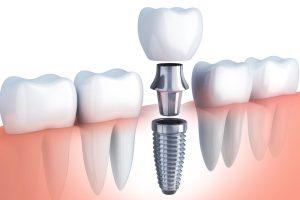As a Aberdeen dentist, the skill of placing dental implants is a crucial part of your practice. The demand for dental implants is increasing, and patients expect the best possible outcome. Therefore, improving your dental implant skills is essential to provide high-quality dental care to your patients. In this article, we will discuss seven enticing ways to improve your best dental implant skills.
Dental Implants - Explained
Dental implants are artificial tooth roots that are used to replace missing teeth. They are made of biocompatible materials such as titanium, which are surgically placed into the jawbone to provide support for artificial teeth, also known as crowns, bridges or dentures. Dental implants have become a popular and effective way to replace missing teeth because they are more stable and long-lasting compared to other dental prosthetics.
The dental implant procedure involves several steps, including a thorough examination of the patient's dental health, imaging, and impressions to determine the appropriate size and placement of the implants, and the surgical placement of the implants. Once the implants are placed, a healing period is required to allow the bone to fuse with the implant, a process called osseointegration. This usually takes several months.
After the healing period, the artificial teeth are attached to the implants using abutments, which connect the implant to the crown or bridge. The artificial teeth are customized to match the patient's natural teeth in color, size, and shape, providing a natural and functional smile.
Dental implants offer many benefits, including improved appearance, comfort, speech, and chewing ability. They also prevent bone loss in the jaw, which can occur when teeth are missing for extended periods. With proper care and maintenance, dental implants can last a lifetime, making them a valuable investment in your oral health.

Ways To Improve Your Best Dental Implants in Aberdeen Skills
Continuous Education and Training
One of the best ways to improve your dental implant skills is through continuous education and training. Attend conferences, seminars, and workshops to learn about the latest techniques, materials, and technologies used in dental implantology. Continuing education programs can help you stay up-to-date with the latest trends and innovations in dental implantology.
Case Studies
Reading and studying case reports can help you gain insights into treatment planning, surgical techniques, and implant restoration protocols. Discussing case studies with your colleagues and mentors can help you learn from their experiences and mistakes. Analyzing and critiquing case reports can help you develop a critical mindset and improve your decision-making skills.
Collaboration and Mentoring
Collaborating with a composite bonding dentist in Aberdeen and other dental specialists can help you broaden your knowledge and skills. Mentoring by experienced dentists in composite bonding can provide you with valuable guidance, advice, and feedback. Shadowing or assisting experienced dentists during composite bonding procedures can help you learn about their techniques, instrumentation, and patient management skills.
Hands-on Training
Hands-on training on models, cadavers, and animal specimens can help you develop and refine your surgical skills. Simulation exercises can help you practice implant placement and restoration techniques in a safe and controlled environment. Hands-on training can help you improve your manual dexterity, spatial awareness, and ergonomics.
Digital Dentistry
Digital dentistry is revolutionizing the field of implantology by providing accurate, efficient, and predictable treatment outcomes. Learning and mastering digital technologies such as cone beam computed tomography (CBCT), intraoral scanning, computer-aided design and manufacturing (CAD/CAM), and guided implant surgery can help you improve your diagnostic, treatment planning, and surgical skills. Digital dentistry can also help you enhance patient communication, satisfaction, and acceptance.
Teamwork and Communication
Dental implant treatment involves a team of professionals, including dentists, dental assistants, dental hygienists, and laboratory technicians. Effective teamwork and communication can ensure the success of dental implant treatment. Improving your communication and leadership skills can help you coordinate and manage the implant treatment team. Building a strong relationship with your patients can also improve their trust, compliance, and satisfaction.
Quality Control and Evaluation
Quality control and evaluation are essential for ensuring the success and longevity of dental implants. Regular follow-up visits, radiographic evaluations, and clinical examinations can help you detect and manage complications and implant failures. Developing a systematic and standardized approach to implant treatment can help you minimize errors, improve efficiency, and enhance patient outcomes.
Conclusion
Improving your dental implants in Aberdeen skills requires a commitment to continuous education, training, and professional development. By implementing the seven enticing ways discussed in this article, you can enhance your knowledge, skills, and confidence in dental implantology. As a result, you can provide your patients with the best possible dental care and establish yourself as a top dentist in Aberdeen.
